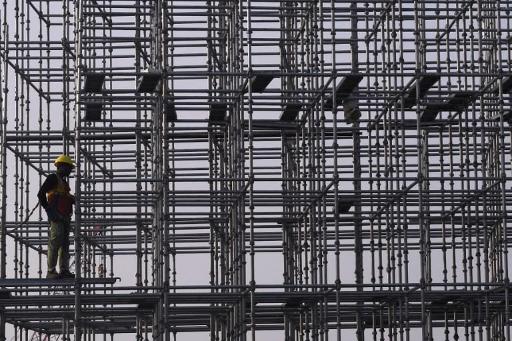Since the start of the year, the cost of building materials has increased by 16%, according to a study published by the Belgian Construction Confederation.
The confederation surveyed 302 Belgian companies to understand the impacts of recent logistical pressures caused, in part, by the war in Ukraine.
More than half of businesses surveyed have been forced to shorten the deadline on customer quotes due to the volatile, rapidly rising cost of building materials and frequent supply delays. 44% of companies now offer quotes valid for a few days, and 8% for just a few hours.
Niko Demeester, CEO of the Construction Federation, has called for the government to allow companies more flexibility in honouring contracts and supplying materials. For companies that are unable to deliver on contracts because of supply issues beyond their control, this would prevent them from facing financial penalties.
Situation critical
Practically all construction companies have been spared the price increases seen since the start of the war in Ukraine. These have particularly affected crucial materials such as steel, non-ferrous metals, wood, PVC, and insulation materials.
82% of contractors report that delivery times for construction materials have grown longer since January: “The vast majority of construction companies fear they will have to close certain construction sites due to a lack of materials and/or excessive losses if the situation continues,” the report notes.
The Federal Government’s decision to extend its temporary unemployment measures – originally conceived to support businesses during the Covid-19 pandemic – has helped alleviate some pressure on the industry. Between 15 March and 15 April, 62% of construction companies were forced to furlough employees.
Wider economic woes
High inflation has also hit the sector hard. In the Eurozone, this increased to 7.5% in March and is even worse in Belgium where inflation hit a record 8.3%. Belgium’s automatic wage indexation system means that labour costs are set to rise by at least 9.22%, higher than the federation had originally expected.
While the price of materials has risen, many businesses are reluctant to pass on their costs to customers. Most companies can only partially pass on price increases on energy, materials, and wages.
Related News
- Household savings in Belgium drop back to pre-pandemic level
- Energy crisis and low consumer confidence hits Belgian property market
The Belgian Construction Confederation is also seeking a reduction in excise duties on business energy consumption, with detailed price revision formulas explicitly included in contracts.”

